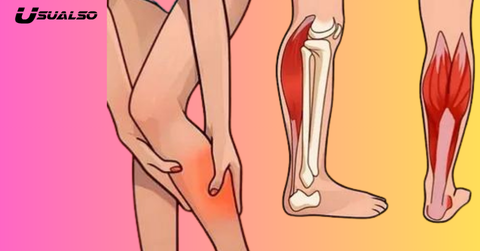Stay hydrated
Drink plenty of water throughout the day, especially if you are active or in a hot environment. Proper hydration keeps your muscles working properly and reduces the risk of electrolyte imbalances.
Regular stretching
Incorporating regular stretching exercises into your daily routine, especially for the calves, hamstrings, and feet, can improve muscle flexibility and reduce the risk of cramping. Stretching before bed can also help.
Calf Stretch:

Stand with one leg behind the other facing a wall. Lean forward, keeping your back leg straight and your heel on the floor. Hold for 20-30 seconds and switch legs.
Hamstring Stretch: Sit on the floor with one leg extended and the other leg bent. Touch your toes on the extended leg and hold the position for 20-30 seconds.
Adjust your sleeping position
If you regularly sleep in a position that causes pressure (for example, with your legs bent or your toes pointed), try changing your position. Sleeping on your back with a pillow under your knees can help relax your muscles.
Get enough magnesium and potassium
Make sure your diet has enough magnesium and potassium, which are important for muscle health. Foods rich in these minerals include bananas, leafy greens, nuts, seeds, and legumes. Some people find relief from night pain with magnesium supplements, but consult a health professional before starting a new supplement regimen…






